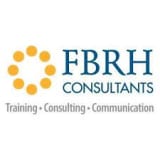This informal CPD article The Sustainable Development Goals: What they are and why they matter was provided by FBRH Consultants, who aim to help businesses gain value by operating in much cleverer, sustainable ways.
Sustainable Development Goals
Climate change, extreme poverty, limited access to safe drinking water, social inequalities, lack of quality education - among other key issues - are impacting hundreds of millions of people across the globe, on a scale never seen before. Climate change may push 100 million people living in developing countries into poverty by 2030.
To address the combined environmental, social, and economic effects of global poverty, the climate crisis and a host of other, unprecedented challenges that humanity is faced with, concrete, collaborative, targeted action has to be taken by governments, organisations and businesses worldwide, based on specific, measurable goals. This is exactly what the United Nations’ 17 Sustainable Development Goals (SDGs) are intended to achieve, as an urgent call for action by both developed and developing countries, in a truly global partnership. Recognising that economic growth and shared prosperity should be accompanied by serious, concerted efforts to eradicate poverty, improve education and health and reduce inequalities, while also protecting the environment and the Earth’s precious natural resources.
Accordingly, these 17 SDGs focus on a truly wide range of critical global issues that are often intertwined, setting detailed goals - from “no poverty”, “zero hunger” and “gender equality” to “clean water and sanitation”, “decent work and economic growth” and “climate action” - on which meaningful action has to be taken. Most importantly, progress on how these goals are addressed is also monitored, with a detailed, annual SDG Progress report presented every year by the UN Secretary General, tracking progress towards achieving these highly important goals.
Facilitating integrated reporting on the SDGs
To help businesses, governments and organisations around the globe address the SDGs, the Global Reporting Initiative (GRI), the world’s most widely used sustainability reporting framework, provides a set of standards - the GRI Standards - that address all 17 Sustainable Development Goals. The private sector can play a key role in accelerating progress on the SDGs. Therefore, GRI has recently produced revised guidance to help businesses and organisations of all sizes and sectors to link the GRI Standards with the Sustainable Development Goals.
This document - a free resource for any business that uses the GRI Standards for sustainability reporting - maps the disclosures in the GRI Standards against the targets under each of the 17 Sustainable Development Goals. This makes it much simpler for organisations to measure, track, and communicate their progress to help advance and achieve the UN SDGs.
Other resources developed to serve this purpose include the SDG Compass. This tool guides businesses in aligning their strategies with the SDGs and strengthening their contribution to sustainable development through their core business operations.
The SDG Compass was developed by GRI, the UN Global Compact and the World Business Council for Sustainable Development. A critical part of its development was the incorporation of feedback, which was solicited via three separate consultation periods from companies, government agencies, academic institutions and civil society organisations worldwide.
The UN Global Compact and GRI have also collaborated on projects to accelerate and shape business reporting on the SDGs, including the Action Platform for reporting on the SDGs, which includes a Corporate Action group allowing representatives from business to play a pivotal role in accelerating corporate reporting on SDGs. After all, active participation of business is key as we work to tackle the world’s most pressing problems.
We hope this article was helpful. For more information from FBRH Consultants, please visit their CPD Member Directory page. Alternatively please visit the CPD Industry Hubs for more CPD articles, courses and events relevant to your Continuing Professional Development requirements.













